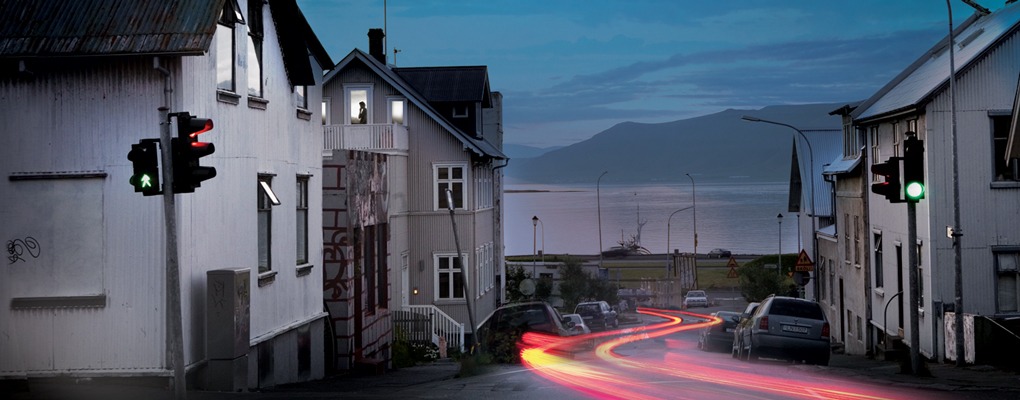Books
Arnaldur Indridason on Iceland
If it’s true what they say – that landscape and climatic conditions shape the character and lifestyle of the inhabitants – then the desolate Icelandic backdrop described in the novels of Arnaldur Indridason is the perfect reflection of his taciturn, morose and solitary hero, DI Erlendur Sveinsson.
The rugged landscape, with its fjords, mountains and valleys, and the changeable weather faithfully mirror the mindset of the characters. In Jar City the relentless autumn rain drains the surroundings of colour, while Voices is set during the darkest month of winter. Not even the subdued spring sunlight of Silence of the Grave can lighten the spirits.
It shouldn’t come as any surprise to readers of the series that Inspector Erlendur Sveinsson does not feel at ease in the summer light. Winter is his favoured time; he is at his best in the darkness and cold which characterise most of Indridason’s novels. The cold is ever present, whether climatic or in the souls of his characters, not least Erlendur himself, or in the society in which they live.
Over to Arnaldur:
“Iceland is a very exciting place to set a crime novel. In the past twenty years it has opened up to all kinds of business and tourism and we have our own history to come to terms with. We’ve been transformed from an extremely poor peasant society into an extremely rich modern society. In the process a lot of people have been left behind and are not at all happy with the result.”
“I was born in Reykjavik but unlike Erlendur I like it very much. I don’t describe it in much detail but it is present in all the books; its streets, buildings and history, like in Silence of the Grave, for example, when Erlendur talks about the old Gas Station [where the police station now stands]. It has to do with the atmosphere as well, the rain, the autumn, the barren trees, that resonate with the storytelling, the psychology of the characters. It is all about the characters. If they don’t work, nothing does.”
“We didn’t have many fictional detectives in Icelandic literature when Erlendur started appearing in my books. My first thought when I created him was that he should be very Icelandic, that’s to say, I wanted to celebrate the fact that he was an Icelandic detective and, as such, unique. He has evolved as the books about him have grown in number. I didn’t know much about him when I started writing the series. Like so many other Icelanders after the Second World War, he moved from the countryside to the city at an early age after a family tragedy, and he has never been able to get over the tragedy or the fact that he was uprooted and forced to start again in a new place. He has never been able to come to terms with it. He could never engage with the social changes happening around him and has ended up as something of a loner, forever looking back and living in the past. But he cares about the Icelandic language and wants to hold on to many of the old values.
You could see him as the antidote to the madness we experienced in Iceland before the economic collapse. There are always some people who get left behind when major social upheavals occur and Erlendur is one of these. He doesn’t like the city; he doesn’t have any time for the modern world with its fast-food chains, the way the Icelandic language is being invaded by English, that is, American, slang, and so on. He lives very much in the past, dwells on the past, remembers simpler times and relives them over and over again. This is partly to do with the fact that as a child he survived a terrible ordeal that killed his brother. Since then it is as if time has stood still for Erlendur and this has caused him serious problems in his personal life. There are many stories of people getting lost in the wilderness in Iceland and books have been written about them (which Erlendur reads), so we know these things can happen. Iceland can be a very harsh place to live. It makes Erlendur vulnerable because he feels he is somehow responsible for what happened, and since the accident time has stood still for him and Erlendur never seems to find a way to start again, to go on with his life and recover.”
Indridason’s novels are subtle, engrossing and richly textured, spare in style and atmospheric, filled with dark stories that envelop their large Icelandic cast. They focus on the small tragedies of ordinary people, which, in the hands of Indridason, become gripping mysteries. At the same time, they introduce readers to a cold little country with a long tradition of powerful storytelling.
“We have been writing ever since we came to this remote island some 1100 years ago and our literature is our greatest contribution to the world. We are extremely proud of our literary tradition, which shows how even the smallest nations can play an important role in world history.
“The Icelandic sagas occupy a huge place in our literature and I don’t think any Icelandic writer can escape their influence. They employ a few words to tell a big story, and this is something I am always trying to achieve in my writing. To use words sparingly. So my books may not be long on words but I hope they’re not short on ideas. Also, the sagas tell stories of families, of honour and revenge, of big emotions and larger-than-life characters, and they’re very entertaining.”


Please note: Moderation is enabled and may delay your comment being posted. There is no need to resubmit your comment. By posting a comment you are agreeing to the website Terms of Use.